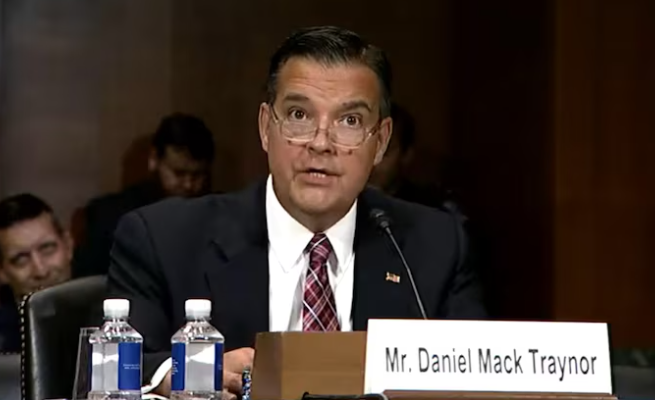A federal judge in North Dakota, U.S. District Judge Daniel Traynor, on Friday rejected a request to recuse himself from a lawsuit involving current and former Columbia Law School faculty. The case concerns protests over the Dakota Access oil pipeline, and the recusal request followed a boycott by Traynor and 12 other judges against hiring Columbia law clerks. The judges had announced in May that they would not hire graduates from Columbia, criticizing the school for becoming an “incubator of bigotry” during pro-Palestinian demonstrations in response to Israel’s war in Gaza.
In a motion filed Thursday, lawyers from Columbia Law School’s Initiative for a Just Society argued that Judge Traynor’s boycott demonstrated bias, making him unfit to impartially preside over their case. The lawsuit centers on the closure of part of a highway during protests against the Dakota Access pipeline in 2016-2017. They claimed a reasonable observer would question Traynor’s ability to remain impartial, especially given his endorsement of harsher enforcement against demonstrators on Columbia’s campus.
Judge Traynor, in his order on Friday, dismissed these concerns, stating that no appearance of bias existed. He explained that the letter he signed was directed at Columbia’s administration due to “violence and harassment of Jewish students,” not the protests themselves. He clarified that he did not hold bias against Columbia students or faculty, and any reasonable person familiar with the situation would not question his impartiality.
Bernard Harcourt, a Columbia professor and director of the Initiative for a Just Society, who represents the plaintiffs, declined to comment on the ruling. This motion to disqualify Traynor is among the first nationally to challenge a judge based on the Columbia law clerk hiring boycott. In August, the 5th Circuit Judicial Council dismissed a misconduct complaint against eight of the judges involved in the boycott.
The lawsuit, filed in 2018 by members of the Standing Rock Sioux tribe and a priest, alleges that a five-month closure of a highway during protests against the Dakota Access pipeline unlawfully restricted travel and violated free speech and religious rights. The plaintiffs’ legal team includes Noah Smith-Drelich, a former Columbia lecturer, and Harcourt. Although Traynor dismissed claims against various state officials last year, the case remains active against Morton County and private security firm TigerSwan, both of which deny any wrongdoing.
The case, Thunderhawk v. County of Morton, North Dakota, et al., is ongoing in the U.S. District Court for the District of North Dakota under case number 18-cv-00212.

